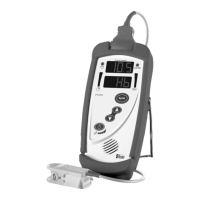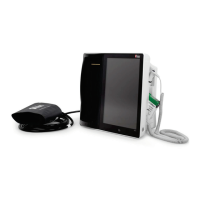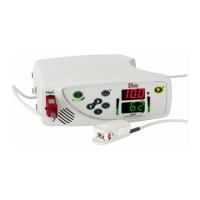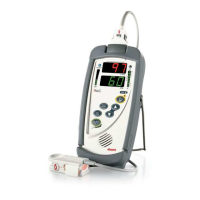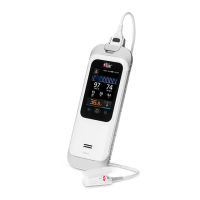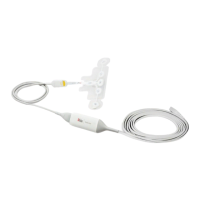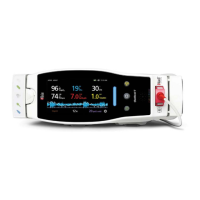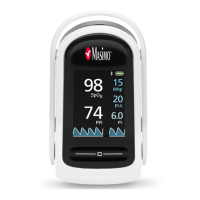O3 Regional Oximeter Safety Information, Warnings and Cautions
www.masimo.com 11 Masimo
WARNING: Inaccurate Delta SpO2 (ΔSpO2) readings may be caused by:
• Improper sensor application
• Elevated levels of COHb or MetHb: High levels of COHb or MetHb may occur
with a seemingly normal SpO2. When elevated levels of COHb or MetHb are
suspected, laboratory analysis (CO-Oximetry) of a blood sample should be
performed.
• Intravascular dyes such as indocyanine green or methylene blue
• Externally applied coloring and texture such as nail polish, acrylic nails,
glitter, etc.
• Elevated levels of bilirubin.
• Severe anemia.
• Low arterial perfusion.
• Motion artifact.
• Venous pulsations.
CAUTION: To ensure that alarm limits are appropriate for the patient being monitored, check
the limits each time the O3 Module is used.
CAUTION: Do not place the O3 Module on electrical equipment that may affect the device,
preventing it from working properly.
CAUTION: To minimize radio interference, other electrical equipment that emits radio
frequency transmissions should not be in close proximity to the O3 Module.
CAUTION: Reset Baseline for each new patient monitored, if applicable.
CAUTION: rSO
2
readings represent a small volume of tissue beneath the O3 Sensor site and
may not reflect oxygenation elsewhere.
CAUTION: Check the sensor site periodically for circulatory status. Each patient’s sensitivity
to the O3 sensors may vary depending on their medical status or condition of their skin.
Note: The value of data from the system has not been demonstrated in specific disease
states, under conditions of hemoglobinopathies or clinical conditions that may affect blood
volume, or under hypocapnic and hypercapnic conditions.
Note: The O3 system is intended for the monitoring of rSO
2
in the cerebral region under the
sensors. Other Body Sensor Sites selections are for reference only and are not intended for
patient monitoring.
